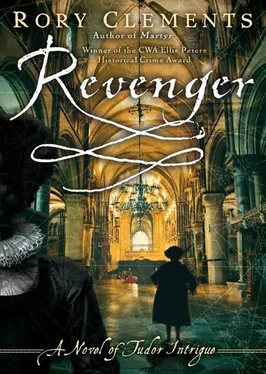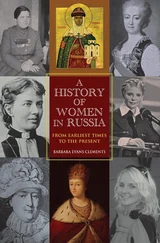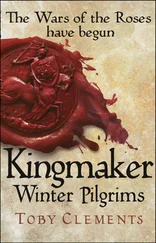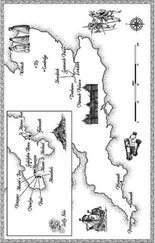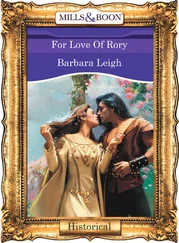His shoulder, now cleaned and bandaged, throbbed where he had been skimmed by the musket-ball. He breathed deeply and caught a heady, musky scent. He reached out his right arm; she was there, beside him. His hand lingered on the soft warm skin just beneath her left breast. His fingers traced her ribs. She did not shy away from him.
Without a word, she nestled closer to him in the warm pit of this comfortable cot. She wrapped her legs around his and her hand went to his yard and caressed it with exquisite tenderness. It needed little encouragement.
She kissed his neck. “Hello, husband,” she said in a quiet voice. “I have missed you.”
He lay still on his back, stretched out, enjoying her touch and willing it not to stop. She was pushing herself against his side as her hand stroked him and teased him. He turned half toward her and his hand caressed the base of her spine and the curves of her buttocks.
“I swear you have the finest arse in Christendom, Mistress Shakespeare.”
“Have you sampled them all, sir?”
She kissed his mouth, deep with longing. Her legs parted more, she moved across his body, and her hand guided him into her. They gasped together at his entry and filling of her.
“Mistress,” Shakespeare whispered, aware that the house was full and sound traveled, “you part your legs like a wanton.”
“And you prance up like a satyr, sir,” she breathed into his mouth. “Now, if it please you, stop your talking and get about your business.”
They rose to ecstasy together, then lay joined for half an hour, holding each other, saying not a word, until he began to rise again inside her and moved his body once more, turning her and twisting her. She responded with eager abandon and they took their fill of joy. And so the afternoon wore on, to the accompaniment of birdsong, the rustling of leaves in trees, and the hopeful notes of children’s laughter.

H E LEFT THE NEXT morning for London, leaving Boltfoot to bring them all down south to him when he sent word that the plague had eased.
On his return to Masham, Shakespeare had spoken at length to the constable and coroner and had sent a sealed note to the lieutenant of the county. No word of this was to come out until Sir Robert Cecil had been consulted and decreed what was to be done. In the meantime, Eleanor Dare was to stay in the house of the Marvells on pain of arrest if she tried to leave. Catherine and her mother would bring her soothing broths and lotions for her injured neck. There was no question of any charges against her at present; Shakespeare had removed the bindings from McGunn’s corpse before the constable arrived with Boltfoot at the shepherd’s cottage. It was clear, he said, that McGunn had been killed in self-defense. The sole survivor of his band of mercenaries, a sallow, taciturn forty-year-old of little wit, was charged with attempted murder and had no defense. He would be hanged for his crimes by week’s end.
Shakespeare and his wife had talked and made love all afternoon and most of the evening, only rising from their chamber for a cup of wine and some pigeon pie to replenish their strength and to give some supper to the children. She understood that her husband had to see Cecil, but she was loath to let him go.
“I fear I have been a poor wife to you, John,” she said as he prepared to mount his gray mare and ride south.
“There were faults on both sides. Let us put it behind us.”
“I had thought there was no crossing our religious divide. It seemed to me you did not understand that there are worse things than dying, that you can starve from spiritual hunger, that Anne Bellamy’s fate is more wretched than anything Topcliffe could devise for his torture room.”
“You must think me a man of little faith.”
“No, not that. I knew all along that your only thoughts were for my welfare. But you asked too much of me.”
“I am sorry.”
“Do not be. You did your duty, trying to protect those you loved. Yet, I must confess to you that before I came here I had decided to ask you to grant me a separation. It seemed to me that we could never live together in peace.”
“And now?”
“Now I cannot bear to be without you.”
He had tried to smile and say he loved her, but emotion constricted his throat and mouth and rendered him speechless. He averted his eyes and patted his horse’s neck rather than meet his wife’s gaze.
“The same old John Shakespeare,” Catherine said, laughing lightly. “Too sentimental for his own good; too sentimental to be an intelligencer, that is certain.”
“But that is what I am.”
“I know. You have been a schoolmaster too long. Leave it to Mr. Jerico. He will make a fine job of it. Work for Cecil.”
Shakespeare nodded.
“And John, when you are in London, find out what you may concerning Father Southwell. I pray for him every day, but I fear his suffering must be truly terrible.”
“I will ask Sir Robert what may be done.”

T HE RIDE SOUTH took four days-days of intermittent rain, gray skies, and brisk winds. He arrived at Theobalds to be told by Cecil’s manservant Clarkson that his master had departed for the West Country on urgent royal business. A Portuguese carrack named the Madre de Dios had been taken off the Azores and brought in triumph to the port of Dartmouth. It was said that the vessel was the richest ever seized by English privateers, heavy laden with spices from the East Indies, along with chests flowing over with gold, silver, silks, and gems. But triumph was quickly turning to disaster as mariners and merchants plundered the cargo. The Queen was in a rage, for a large portion of treasure should have been hers by right. Cecil’s task was to protect what was left and recover what had been taken.
“It is said that mariners in the ports of Devon are all drunk, night and day, and are easily known for they all stink of rare Orient perfumes. They sell pearls and amber for the price of a tankard of ale, Mr. Shakespeare. The roads west are packed with merchants, hurrying to buy the treasures from the pillagers. Sir Robert is so concerned that he has summoned Sir Walter Ralegh from his cell in the Tower, to go west to help him in his task of bringing order to the region; the Navy’s treasurer, Sir John Hawkins, believes that if the men will listen to anyone, it is Ralegh.”
“Sir Walter is a free man, then?” So much, thought Shakespeare, for McGunn’s vengeance.
“Not exactly. He is kept under the guard of keepers all the while and will return to the Tower when his mission is done. As for his wife, Bess Throckmorton, she remains in the Tower at the Queen’s will.”
“What of their baby?”
Clarkson shook his head sadly. “The boy Damerei? He has died. The child was born sickly.”
Shakespeare shivered. “Was there any suggestion of foul play, Mr. Clarkson?”
“Not that I have heard, sir.”
Shakespeare arched his aching back and winced. It seemed to him that he had spent two weeks on horseback. His shoulder was healing well but his saddle-sore inner thighs were as ill-used as a Southwark whore’s. Now another ride beckoned.
“If I may prevail upon you, Mr. Clarkson, I would be grateful for food, a bed, and a fresh horse for the ride west. My gray mare has done more than enough these past days.”
Clarkson stopped him with his outstretched palm. “Do not think of going down there, Mr. Shakespeare. Sir Robert received your message from Hardwick Hall and commanded me to tell you that he will see you on his return.”
“Did he say anything else?”
“He says that he trusts you have the evidence. That is all.”
Читать дальше
